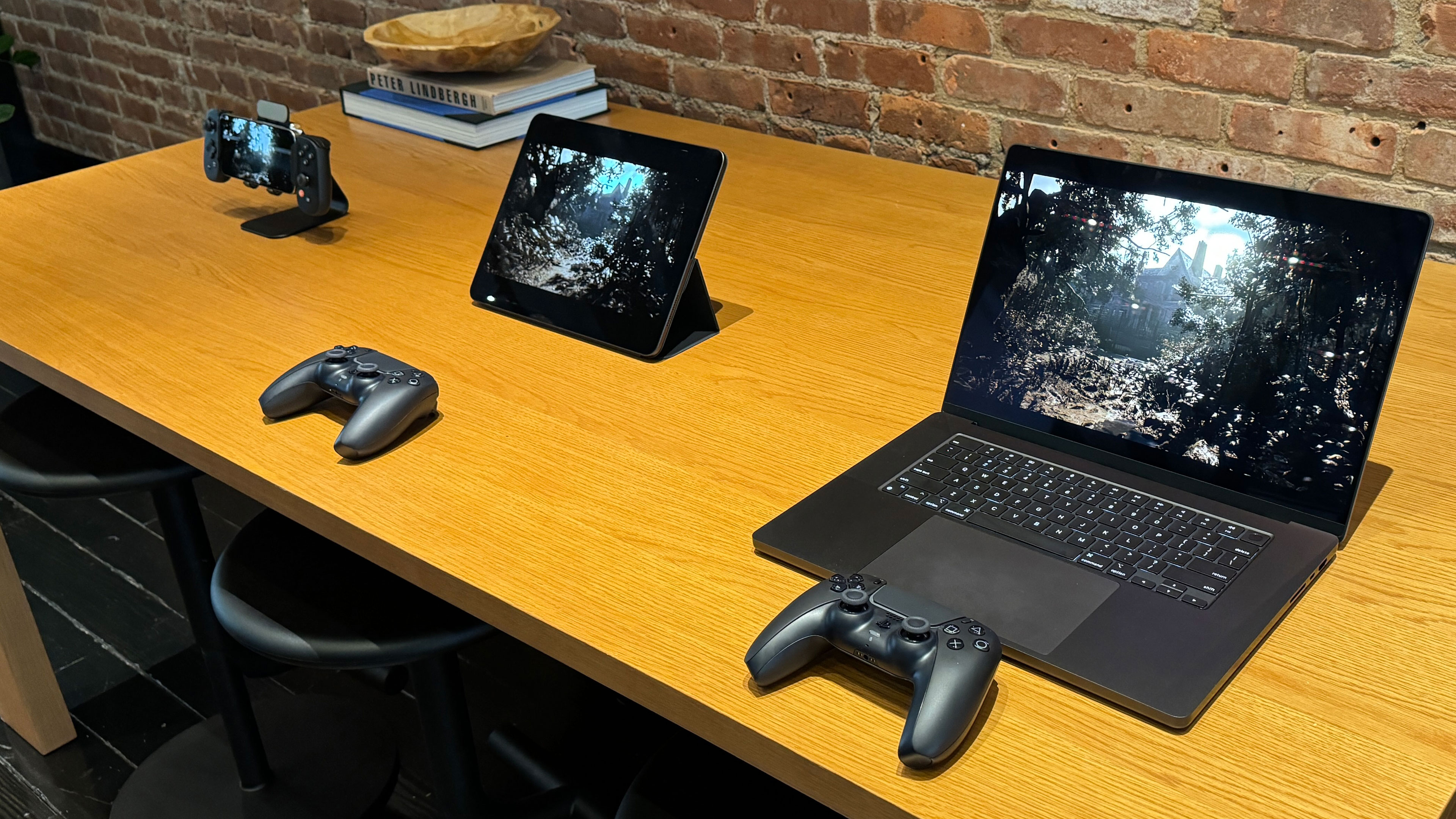
Just a few years ago, the idea of gaming on a Mac was a joke among the enthusiast PC community. But I'll give Apple this — it's clearly putting in the work. And while it definitely can't compete with Windows PCs or consoles on its library just yet, Apple does have one trick up its sleeve that I think, in time, may be able to draw a certain type of person to gaming on its platforms: the ecosystem.
At a small showcase, Apple showed me what a few years ago would have been unthinkable: a series of Macs running recent releases and previews of upcoming games, natively on Apple Silicon. It's a huge step that games like Assassin's Creed: Shadows and Frostpunk 2 are set to come day and date with PC, Xbox, and PlayStation releases. (Frostpunk 2 was on display. Assassin's Creed: Shadows was not.) And that's not all — the iPad and iPhone were also playing intensive games, thanks to Apple's shared chip architectures.
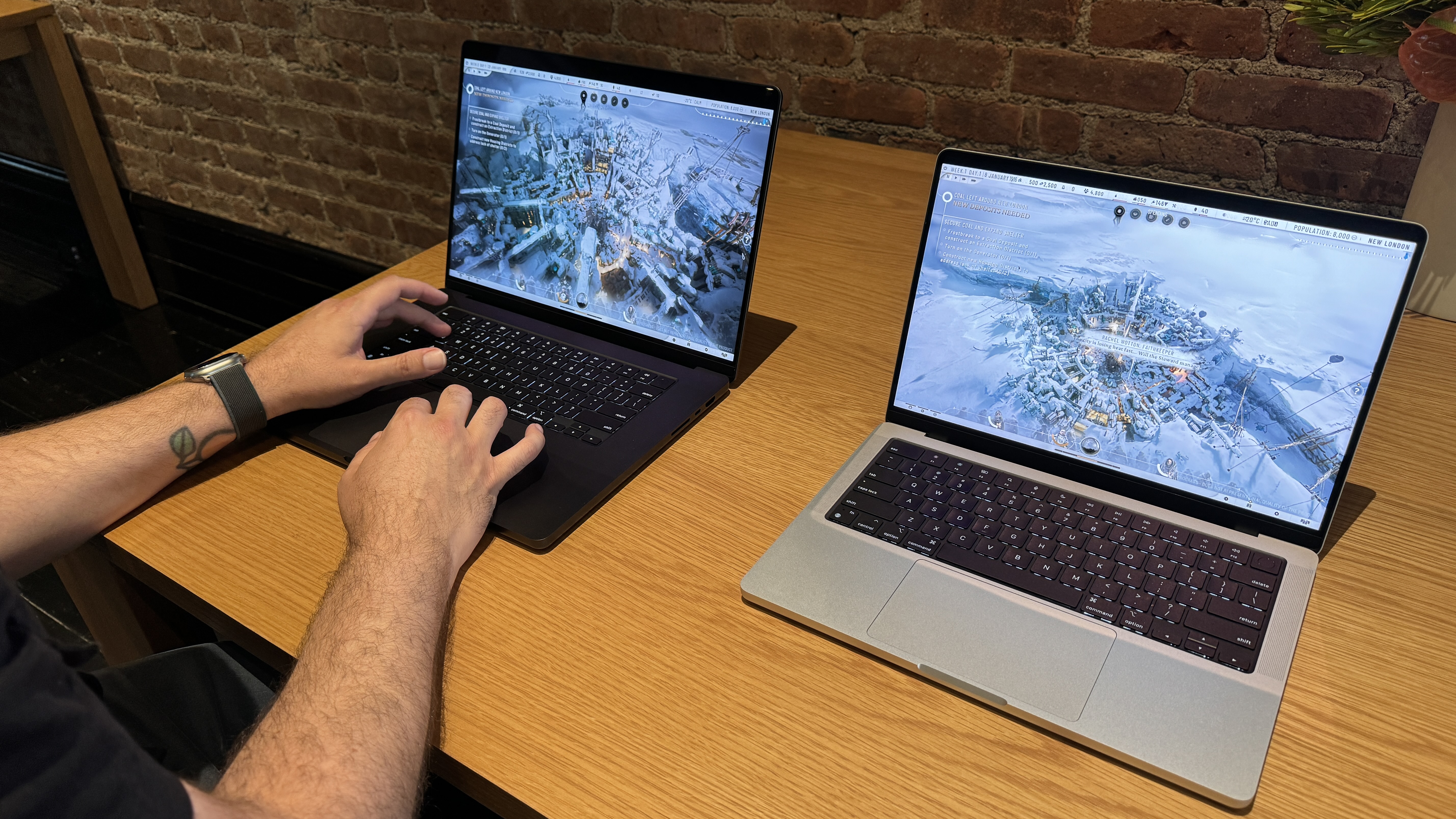

The company is catching up on some recent releases, like Palworld, which is set to release later this year. But toss in new developer tools and the idea that your games could carry over to other Apple devices, and that's where things get interesting.
Game Porting Toolkit 2
macOS
Frostpunk 2
Palworld
Resident Evil 7 Biohazard
Valheim
iOS and iPadOS
Assassin's Creed Mirage
Diablo Immortal
Resident Evil 7 Biohazard
Zenless Zone Zero
Game Porting Toolkit 2
Control: Ultimate Edition
Announced at WWDC, this year's update to the Game Porting Toolkit should further help to streamline Apple Silicon Mac development for games already designed for the PC, and also, crucially, bring Mac games to the iPhone and iPad.
The new version of the Toolkit includes AVX2 support, ray tracing, and improved performance. There are also new human interface guidelines, and new debugging tools for shaders in Xcode to help convert them to Metal (and unified shaders that should work once across the Mac, iPhone and iPad).
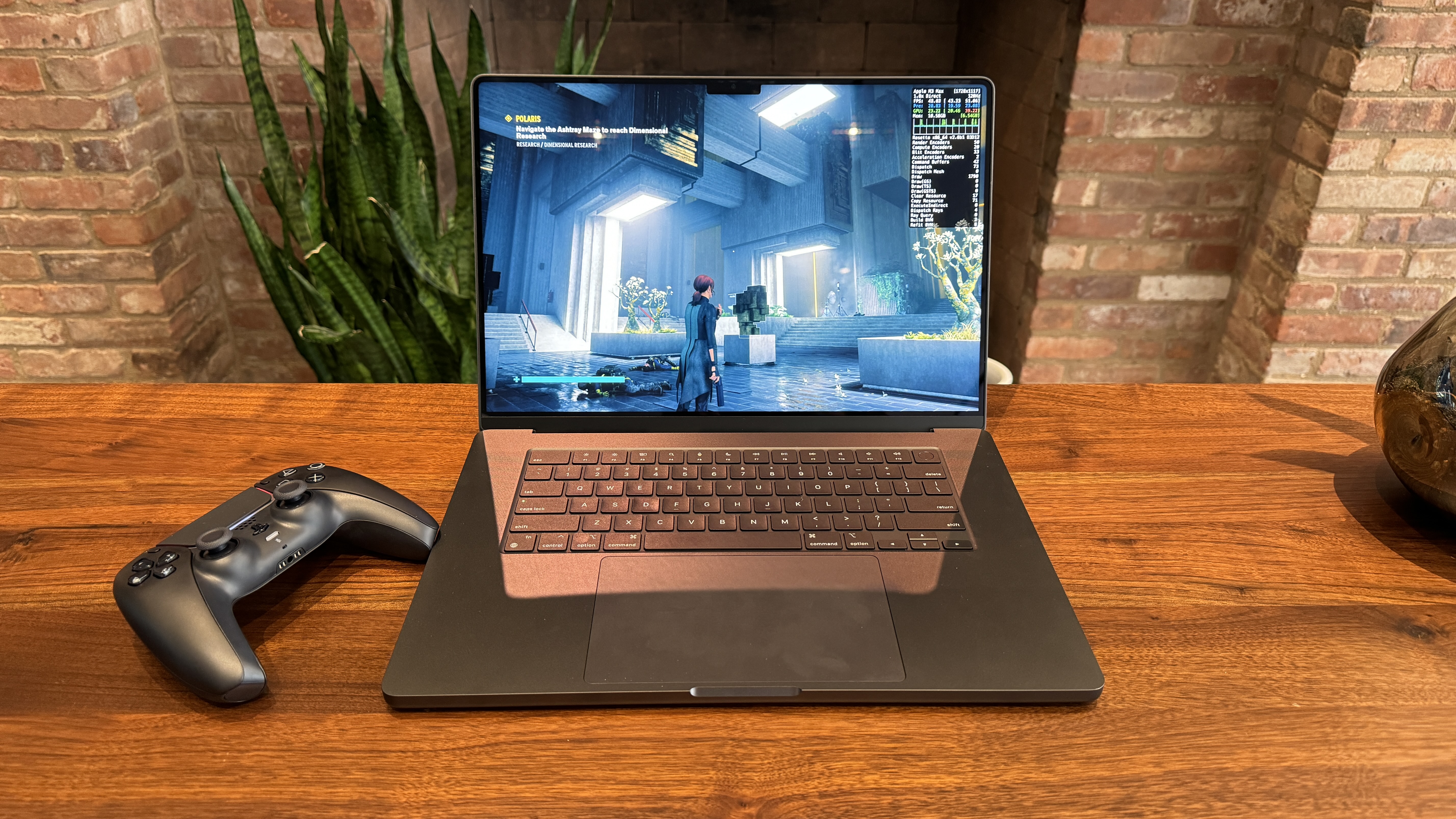
Apple showed off Control: Ultimate Edition running through the Game Porting Toolkit. The game is coming natively to Mac later this year, five years after the game's initial launch. A bit late, but it's a great game!
Using the Windows version of Steam and the DirectX 12 version of the game, a MacBook Pro with an M3 Max played the title at 46 - 50 frames per second on high-quality settings and high ray tracing with a resolution of 1728 x 1117. I picked up the DualSense controller Apple had in front of the Mac and took on some Hiss guards as Jesse Faden, and it felt largely ready to go. If this is what convinced Remedy to port the game over, I can kind of see why it happened. With the M3 series and M4 chips supporting ray tracing tech, the game looks great.
The Unified Gaming Platform
Where Apple may have an advantage is where it typically excels: in its ecosystem. If games are released for the Mac, but then you can play them on your iPad or iPhone, it could open up gaming to tons of people who wouldn't have done so previously — and make it easier for enthusiast Mac gamers to play anywhere.
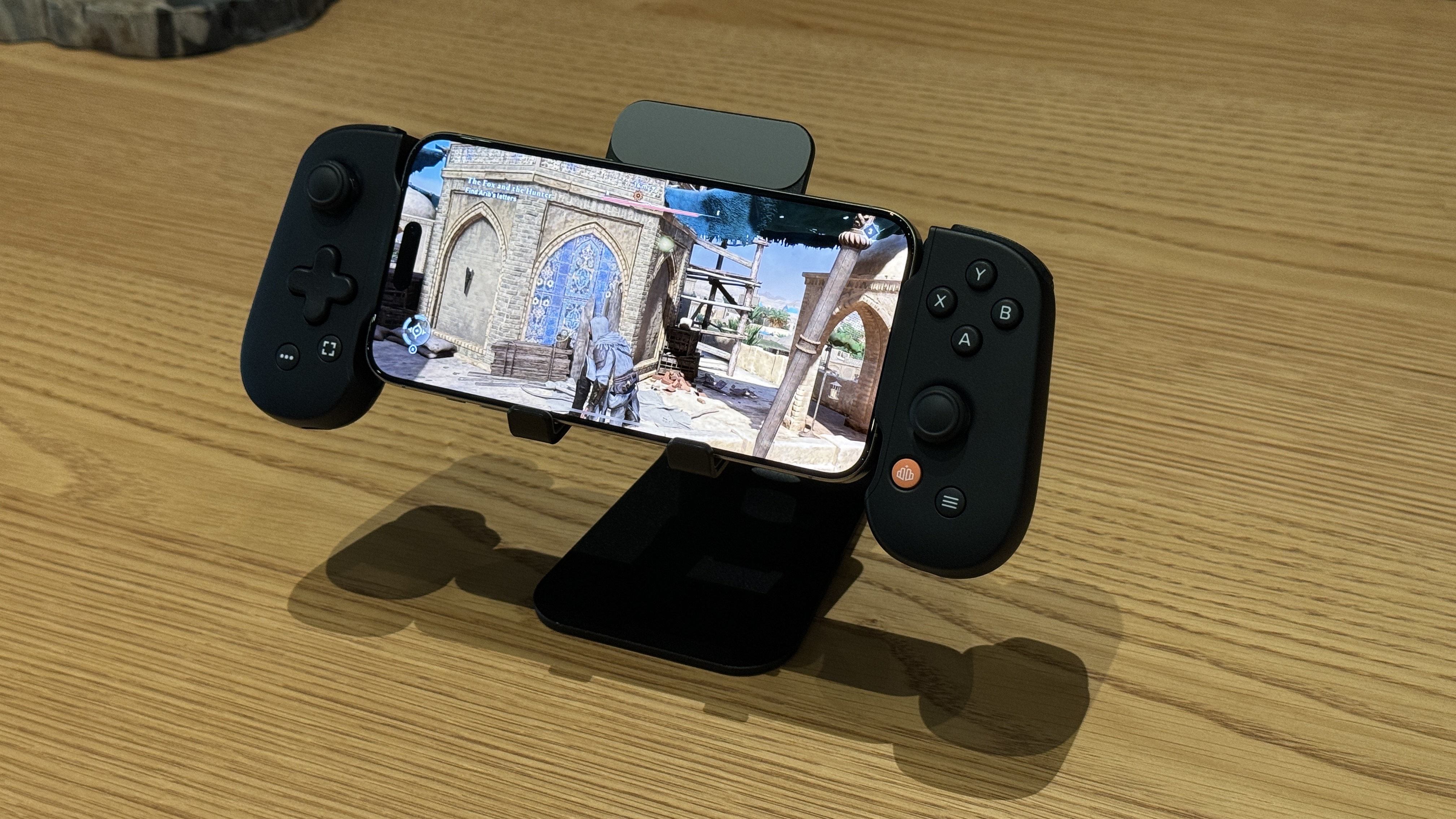
Playing anywhere has been a bit of a white whale for gaming companies lately. Think of cloud services like Game Pass from Microsoft or GeForce Now from Nvidia. The idea was you'd stream games to play them anywhere.
Apple's vision strikes me as a slightly more traditional version of the idea. Never mind streaming, but how about running the game locally on each device? Apple showed Resident Evil 7: Biohazard, which launched on Apple's products in July, running across the latest iPhone 15 Pro, iPad Pro with M4, and Macs . This particular game supports Apple's Universal Purchase functionality, so if you buy once, you get it across your Apple ecosystem. And the game uses iCloud to sync save data, so you can pick up where you left off on other devices.
Assassin's Creed Mirage has similar tricks, but only across the iPhone and iPad (and it looks excellent on the M4 iPad Pro's tandem OLED display, by the way). Rather than using iCloud, it uses Ubisoft Connect for syncing.
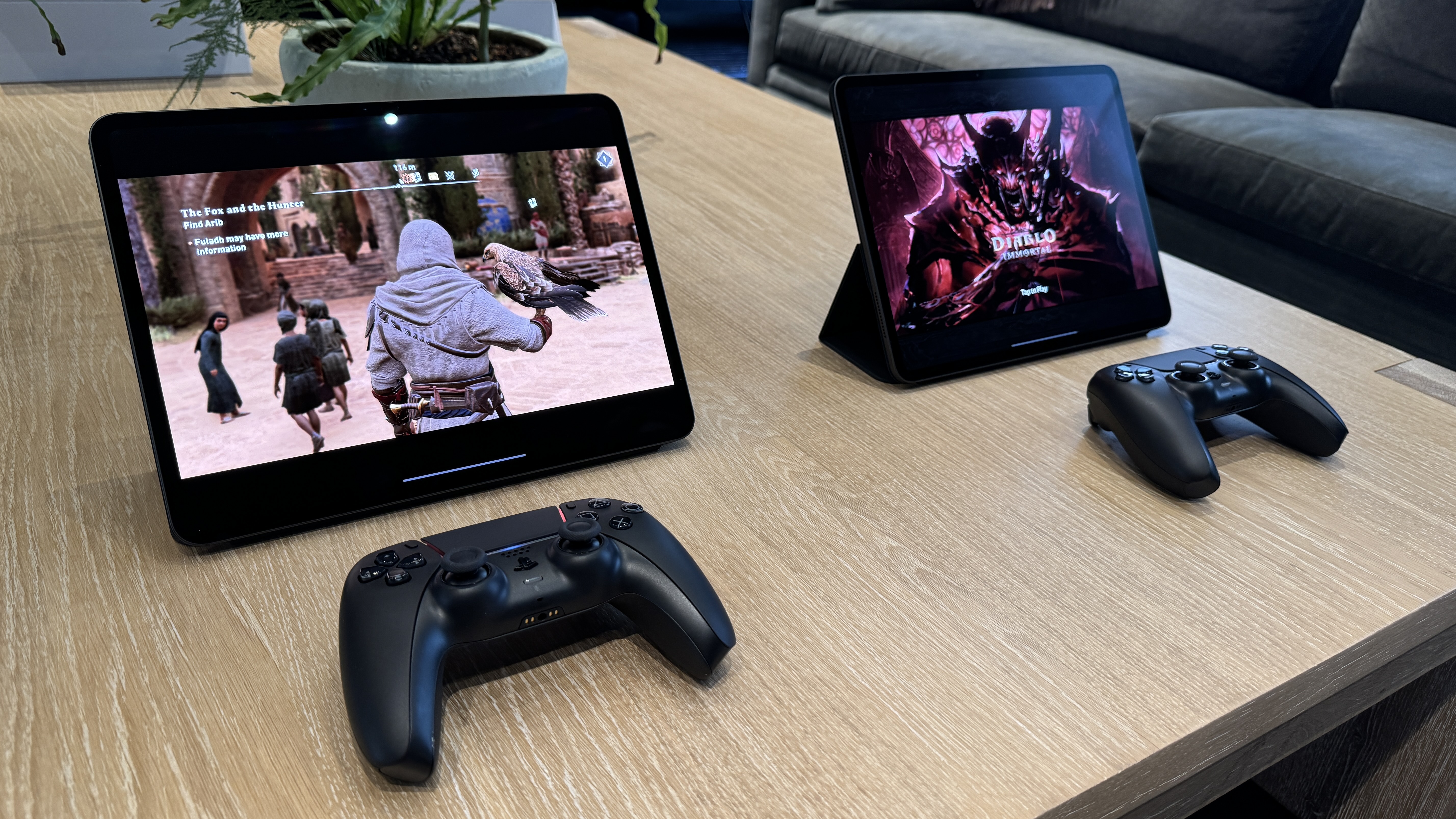
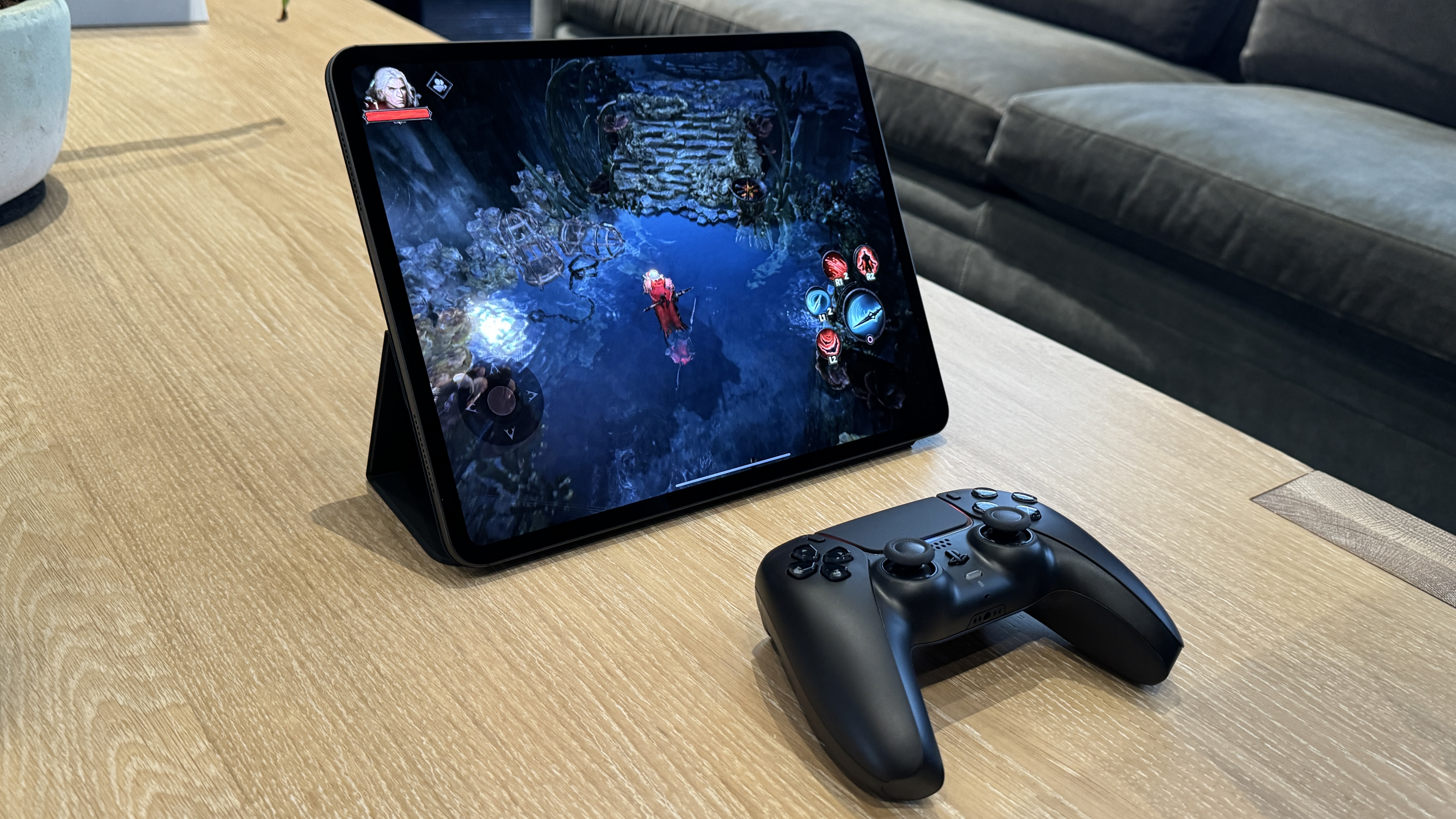
Apple needs to beef up its gaming library
As much as I liked seeing more games run well, particularly on the Mac, it still needs a lot more games to make it the main place for anyone to play. Ubisoft and Capcom are great partners — big studios with games people want to play. But the gaming PC is popular because it supports just about every major game outside of some console exclusives, and has a backlog going back decades.
Apple needs to start somewhere. In my view, that's primarily with future games. I don't know how many people didn't play Death Stranding or Control a few years ago that will only play them because they're on the Mac. I think recent games like Palworld and upcoming games like Frostpunk 2 are better bets — get people when the games are new.
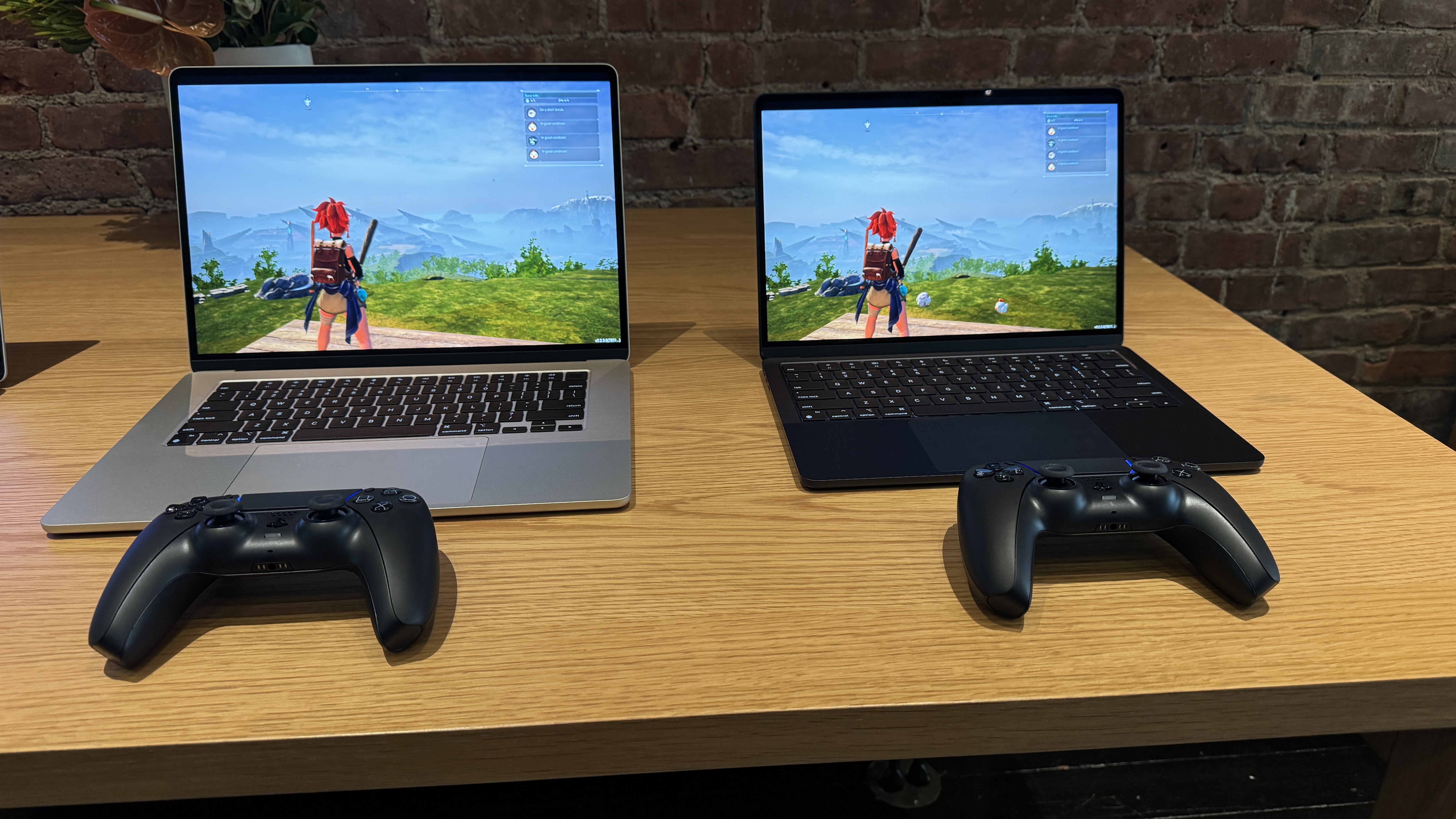
That also means it will take a significant amount of time for Apple to get its gaming efforts anywhere near mainstream. I hope the company is ready to continue this investment in chips, developer relations, and technologies. To get gamers and studios entirely on board will take a lot work. It will take years to see if this can be a true success. (Apple also needs to ensure it doesn't alienate game developers and publishers, like Epic Games, which means one of the biggest games in the world doesn't run natively on its flagship platform).
But sitting in that room, playing some Resident Evil on a MacBook Pro, Assassin's Creed on an iPad, Palworld on a Mac, and Control through x86 emulation tech makes me believe Apple is taking gaming seriously this time. It may never release a gaming laptop — instead, the idea is any Mac (with Apple Silicon, of course) can be a gaming machine. So can any iPad, any iPhone. It's a bold claim that will take continued successes to convince the often-skeptical PC gaming community.
Quality of life improvements, as long as you're in the ecosystem
Apple's other gaming-focused projects are less shiny. Game Mode, which launched on the Mac last year, is coming to the iPhone and iPad this year with iOS 18 and iPadOS 18, minimizing background activity and reducing latency for audio and controllers. MacOS Sequoia will have a new version that reduces background processes even further.
The Mac App Store will require far less storage space to begin an installation update when macOS Sequoia launches later this year. Future updates will also let Mac owners install games to separate disks from the Mac App Store, which is helpful given the ballooning size of games.
And spatial audio is making its way to games in the new Mac and mobile operating systems, reducing latency and ensuring better audio while you're in game chat. Of course, that requires the second-generation AirPods Pro.
Stereotypically, the PC gaming community doesn't like lock-in. But the Apple community is known for loving when things work in an integrated fashion.
The work has started, and it's impressive. Apple still has a long way to go. But hopefully, one day, there's a future where PC gamers, Mac gamers, and console gamers are all cross-playing with each other. Wouldn't it be beautiful?







